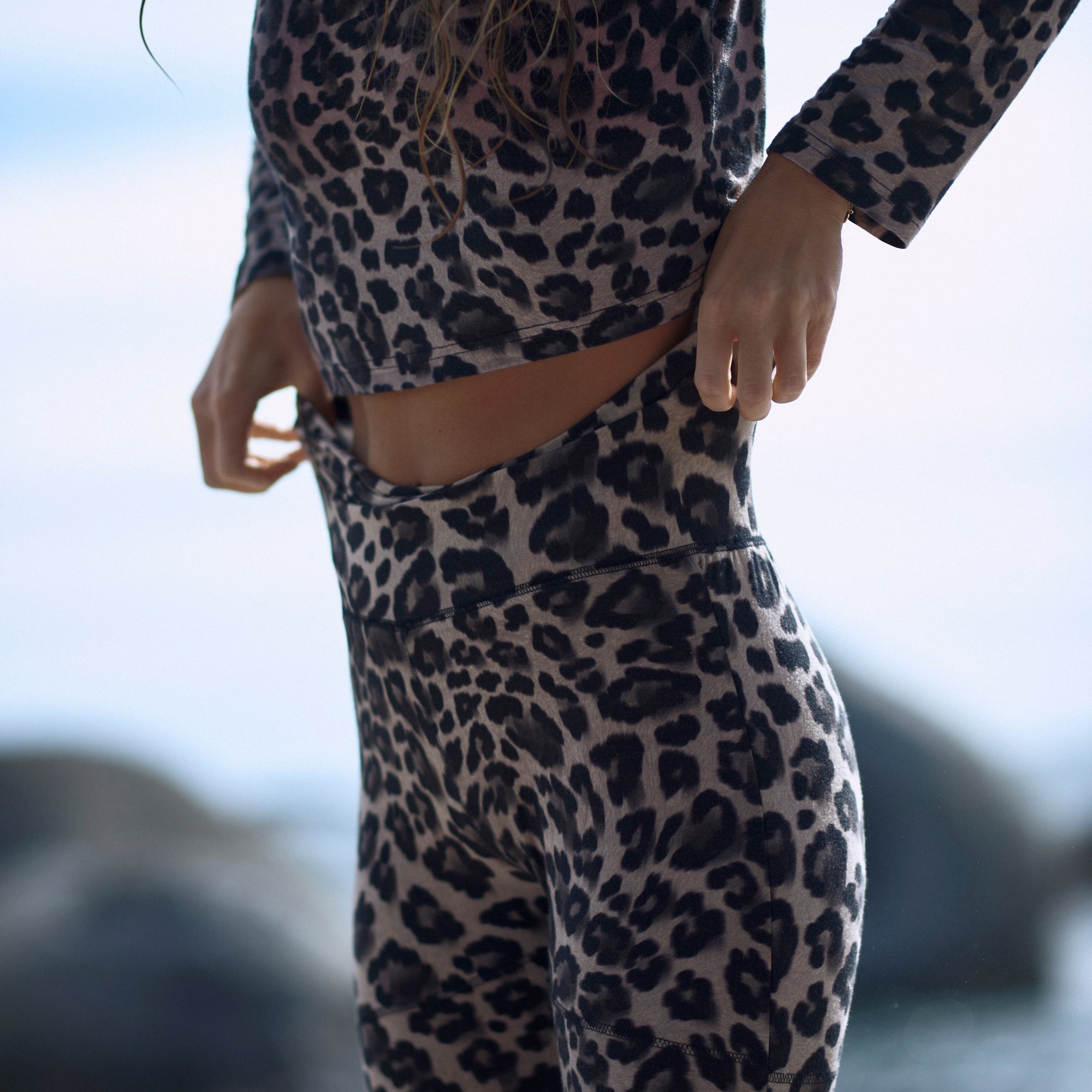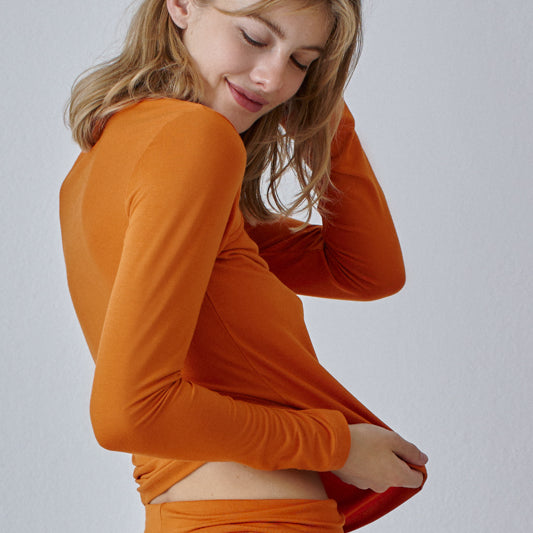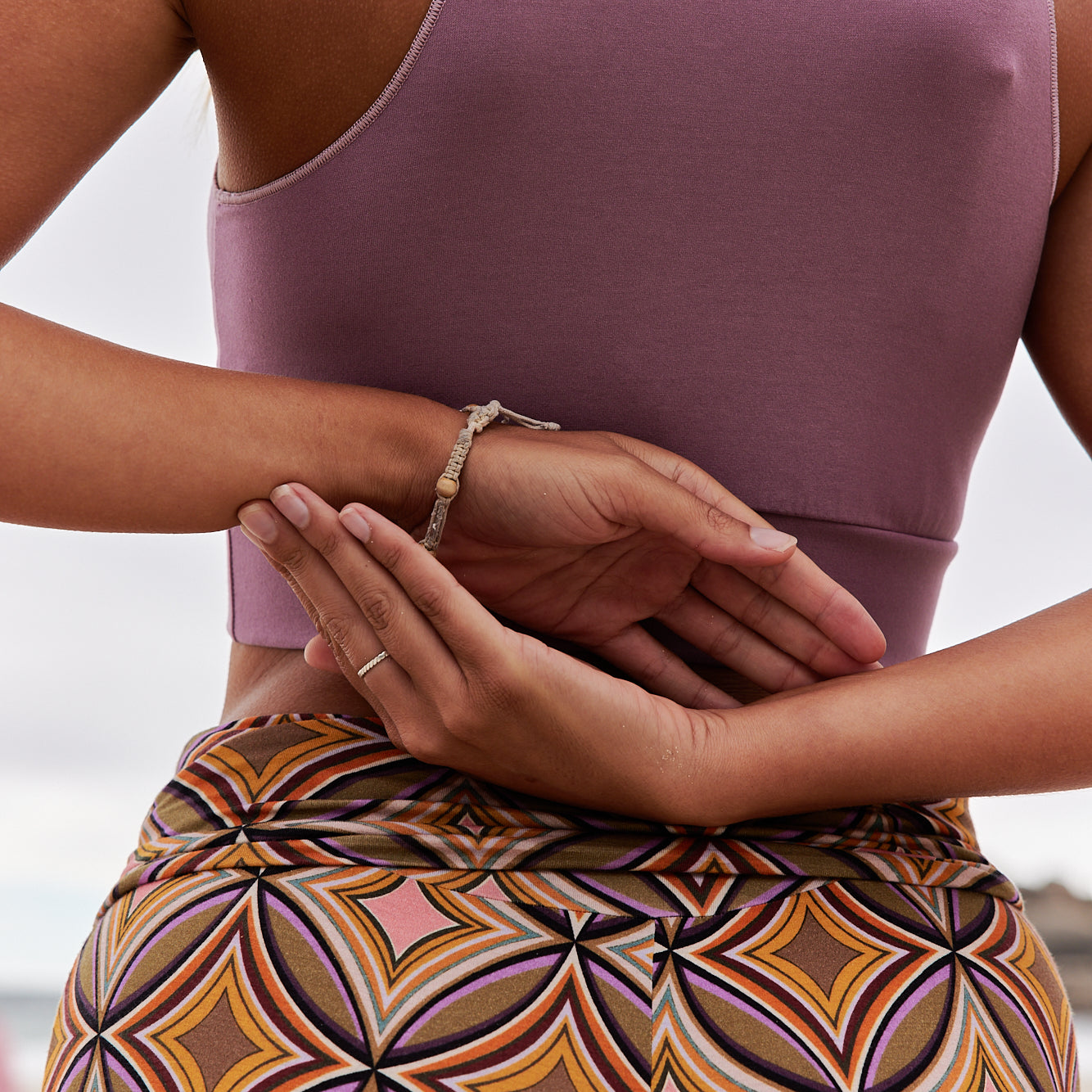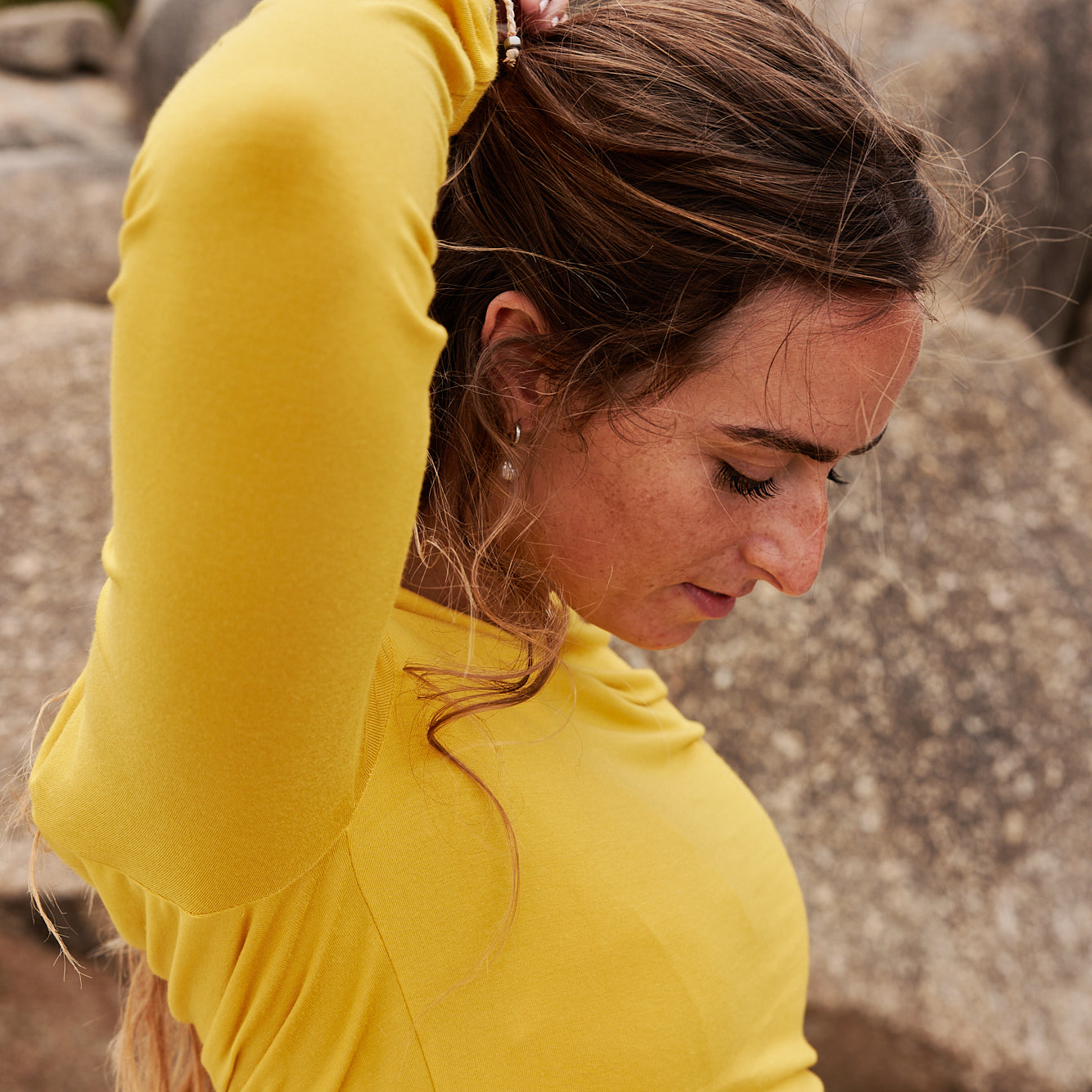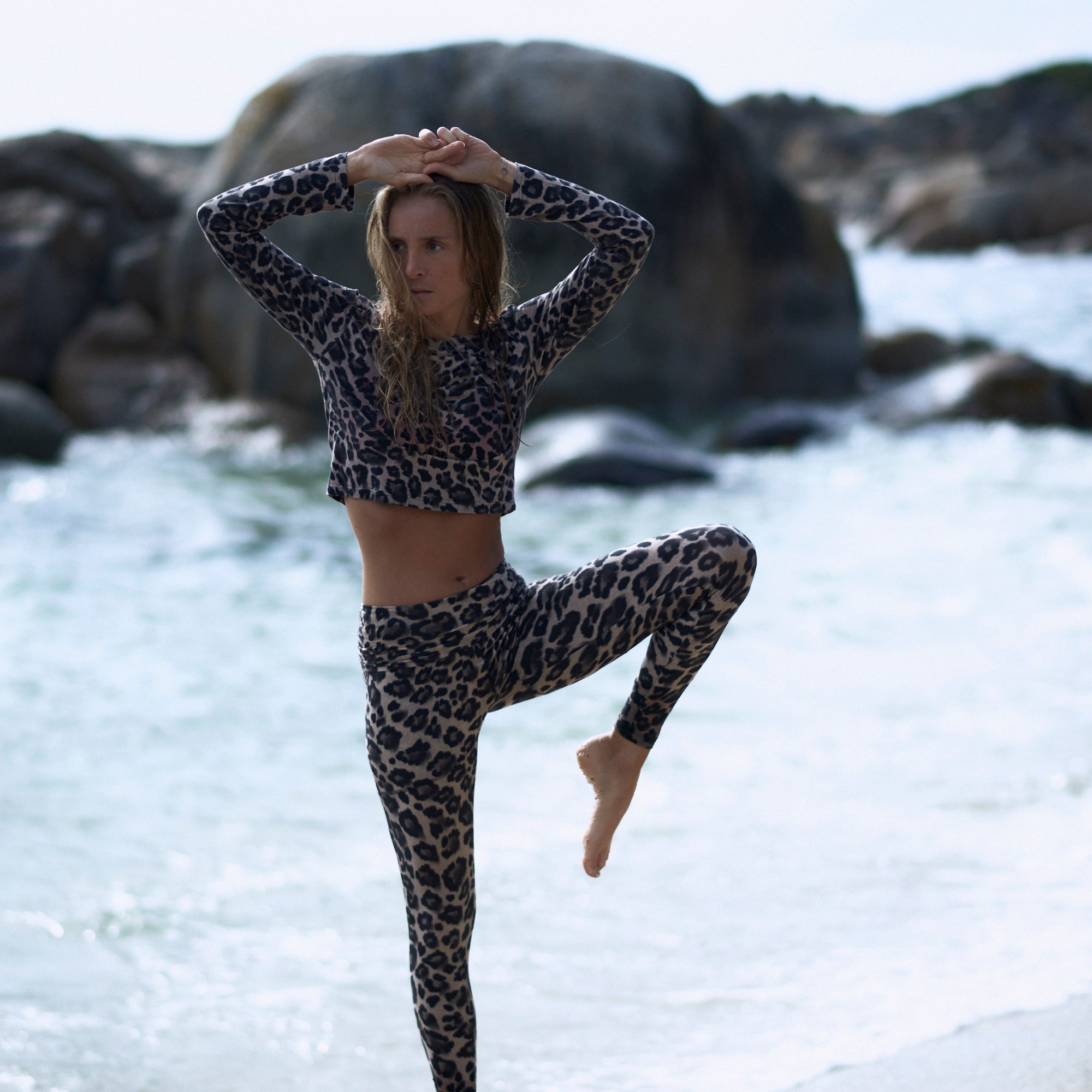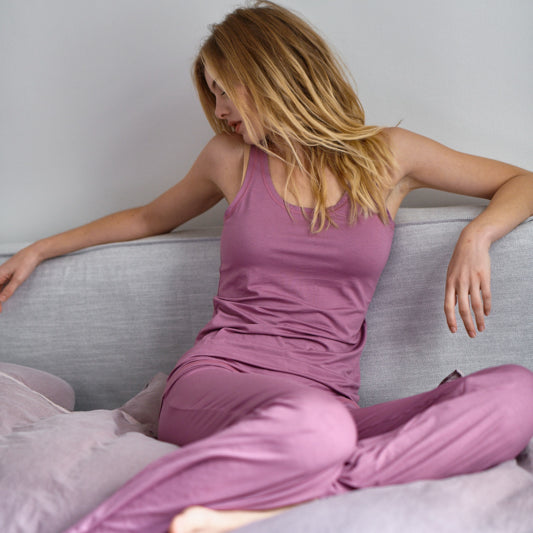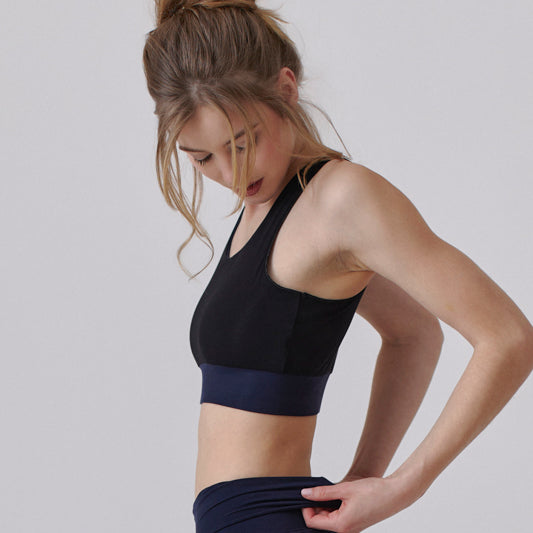Clothing made from renewable raw materials
TENCEL™ cellulose fibers are of botanical origin and define a new standard for sustainability and natural comfort. The fiber runs like a thread through our collections.
TENCEL™ Modal fibers are made from the renewable raw material beech wood, which
comes from sustainably managed and certified forests in Austria and its neighboring countries. Consisting of the natural raw material wood, TENCEL™ fibers are biodegradable and compostable and can be completely returned to nature. TENCEL™ Modal fibers help maintain the balance of the environment through a natural circular process.
Here you can learn more about the compostability of our clothing at the end of its life cycle.
The fibers are manufactured at the Lenzing site in Austria in a very environmentally friendly production process. During the solvent spinning process, the process water is recycled and more than 99% of the solvent is returned to the production cycle. The consumer can therefore be sure that their choice of clothing is protecting the environment.
Properties of Tencel Modal Fiber
Fall in love with the special features of our models
Minimal static charge
Due to their ability to absorb moisture, the fibers are stress-free and do not become electrostatically charged. In comparison to synthetic materials, no electrostatic charging occurs.
Flexible & dimensionally stable
The material is not only extremely stretchy and elastic, but also very dimensionally stable. These properties prevent trousers from slipping or bulging in the knee area, for example.
Long-lasting softness
Since the wood-based TENCEL™ Modal fibers are highly flexible, these textiles offer long-lasting softness. In addition, Modal is crease-resistant, dries quickly, has no allergy potential and is heat-resistant.
absorbency
The ability to wick moisture away from the skin ensures that the skin feels dry and cool even during intense physical activity or high temperatures.
temperature-balancing
By combining moisture management and breathability, Modal can help regulate body temperature. It keeps the body cool in warm conditions and warm in cooler conditions by effectively wicking away excess moisture and providing continuous airflow.
Quick-drying
Modal dries faster than many other materials, meaning that moisture rising from the skin evaporates more quickly. This also helps with temperature regulation, as wet clothing can lower body temperature.
Our customers therefore also love our models as a hiking look, because after climbing the mountain it is especially important to be able to quickly
to be dry!
Suitable for allergy sufferers & sensitive skin
Modal fibers have a smooth surface that causes little friction on the skin compared to most other materials. This makes them comfortable to wear and reduces the risk of skin irritation.
odorless
In contrast to fashion made of polyester, which is known to develop unpleasant odors very quickly, the model fiber is odorless. This means that our clothes do not have to be washed immediately after every sweating, but can be worn more often, as unpleasant odors caused by sweating only begin to develop very late.
heat resistance
Compared to cotton and viscose, modal fiber also performs much better in terms of heat sensitivity!
ease
Due to its fibre profile, the material is wonderfully light, feels pleasant on the skin and gives the clothing a silky
shiny look.
color fastness
The color pigments are deeply embedded in the TENCEL™ Modal fibers, which means that the luminosity of the colors lasts longer than with conventionally dyed fibers and the color intensity is well maintained even after repeated washing.
Easy-care
Our models are unique and exclusive, but easy to care for. You can wash them in the washing machine at 40 degrees together with your other clothes.
wrinkle-resistant
Another reason why our customers love taking Lounge Cherie with them on their travels! The material is crease-resistant: after washing, simply pull them into shape and leave them to dry. They don't need to be ironed. And if you hang them up for a moment, they will become crease-free again on their own, even after they have been squeezed into a travel bag.
Comparison: Modal / Cotton / Polyester
Origin
Modal is made from the cellulose of beech wood, which can be obtained from sustainably managed forests.
Cotton is a natural fiber made from the seed hairs of the cotton plant.
Polyester is made from non-renewable petrochemical products.
manufacturing process
Modal: The production of Modal is environmentally friendly, especially through the use of closed-loop systems to reuse chemicals and water.
Cotton: Its cultivation is resource-intensive and requires a lot of water, pesticides and fertilizers, which causes significant environmental damage.
Polyester: The production of polyester is energy-intensive and produces greenhouse gases.
resource consumption
Modal uses less water than cotton and can be produced using renewable energy.
Cotton has a high water consumption and can be
contribute to soil degradation and water pollution.
Although polyester requires less water than cotton, its production is based on fossil fuels.
degradability
Modal is biodegradable and compostable.
Cotton is biodegradable and compostable.
Polyester is not biodegradable and wears heavily
contributes to environmental pollution caused by microplastics.
Sustainability and Alternatives
Modal has a small ecological footprint because it is produced using a resource-saving process from sustainably sourced wood fibers and is biodegradable.
Organic and Fairtrade cotton is more environmentally friendly than regular cotton because it is grown without harmful chemicals and with less water.
Polyester can theoretically be recycled, but the process is complex and very inefficient. The environmental impact of microplastics is also still present in recycled polyester.




